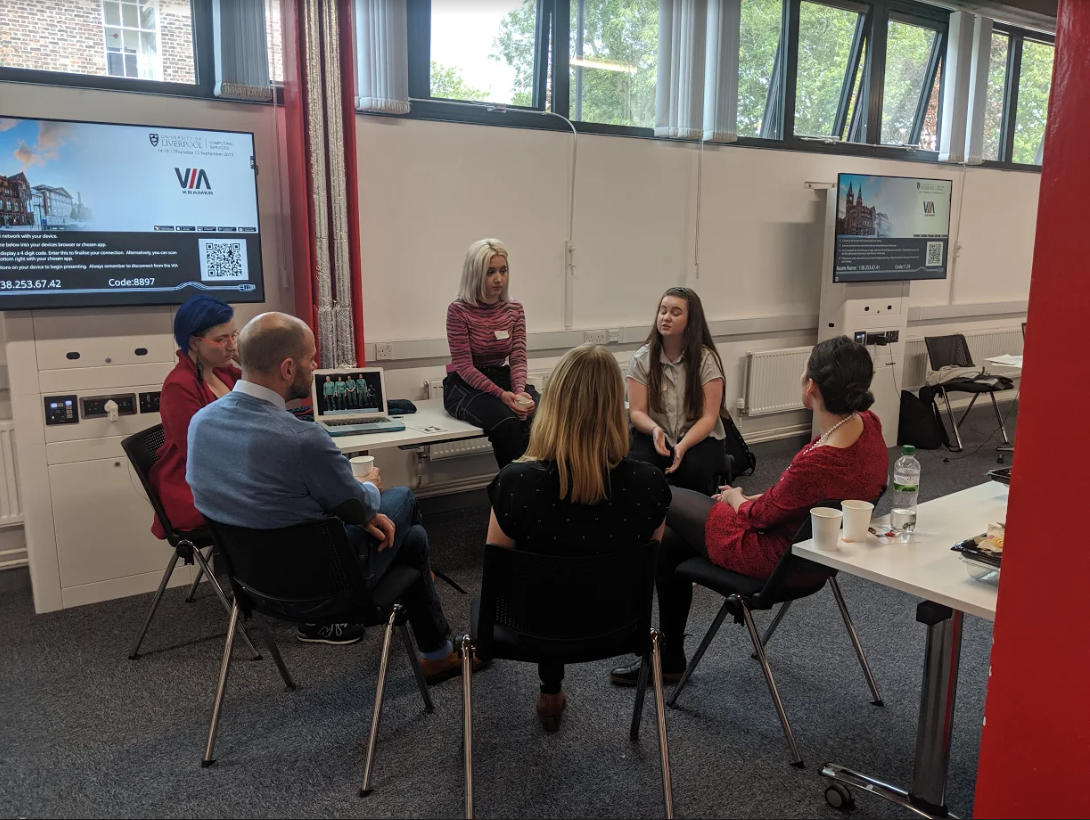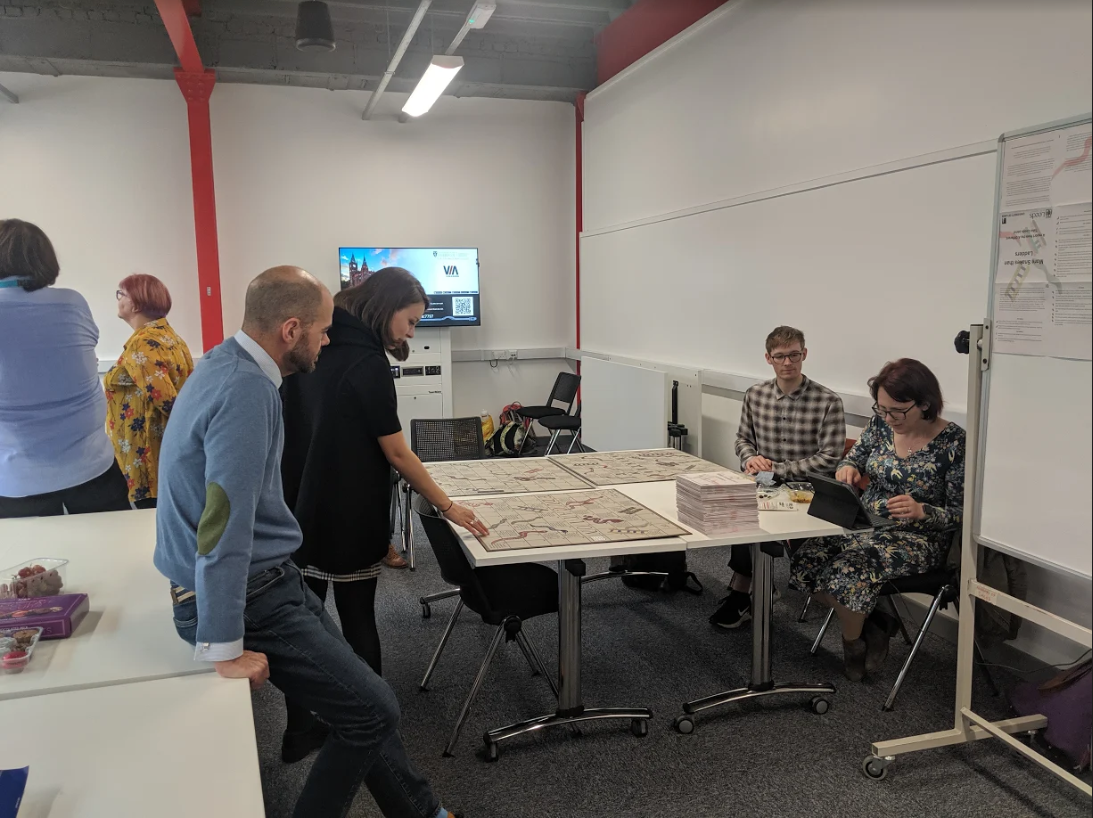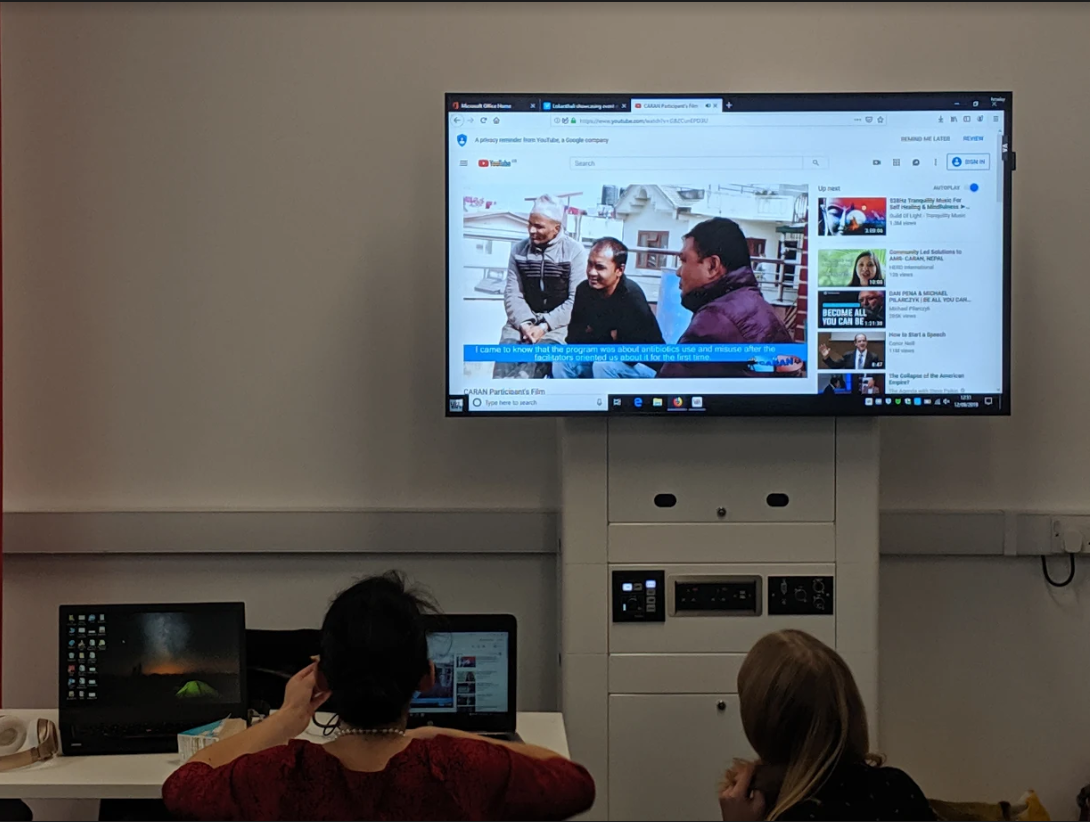Researchers are increasingly being more inventive in the outputs they produce from their work. At SRA North we wanted to capture and share some of that ingenuity to inspire others. We held a knowledge café in September 2019 at the University of Liverpool in collaboration with engage@Liverpool , and asked participants to present 'films, theatre, infographics, mixed media, computer models - in short, anything that is not a journal article or 1:3:25 research report!'
We were impressed by the variety of responses to our call. The event itself was a fun exploration of what is possible when you bring some imagination to research dissemination. Here are some of the things we learned, with links to research and projects presented at the event.

1. Creative approaches can be an excellent way of telling stories that might otherwise go unheard by decision makers.
Media and policy narratives around child poverty often present children and families in a negative light, and the voices of children and families are very often absent from research. Dr Gill Main and colleagues from the University of Leeds have created a snakes and ladders board game based on experiences of poverty from the perspectives of children, young adults, and parents. A panel of experts by experience have been trained in peer research and media communication, and are using the game to have conversations about child poverty with senior council members, charity leaders and private sector organisations. They have produced a video about the project: A Different Take

People leaving the criminal justice system face a range of issues that can make release challenging. Dr Aylwyn Walsh leads a collaborative performance module at the University of Leeds, and has developed partnerships with a series of organisations including West Yorkshire Finding Independence, Life Experience, Leeds Magistrates' Court, Her Majesty's Prison and Probation Service, and Ripon House. Students on the module interview people who have experience of the criminal justice system, observe court hearings and produce ethnodrama based on their research, which they then present to partner organisations. This is an excellent example of how research, teaching and collaboration can be brought together.
2. The importance of involving stakeholders throughout the research process
Many of the projects at the knowledge café involved people throughout the process of the research in a range of roles from adviser to co-researcher. This can be a great way of giving people ownership over the research, and also of starting conversations with stakeholders.
Dr Jenni Brooks showed a film developed with colleagues at the University of York as part of research about life story work in dementia care. People with dementia acted as advisers to the project, supported by Innovations in Dementia , and helped to shape the research at various stages. One of these points was the development of a film about good practice in life story work. The advisers watched several short films about other research projects. Their feedback shaped the final format of the film, which you can download here.
Other research projects involved people as more than advisers. Dr Jessica Mitchell and Inés Soria-Donlan introduced the CARAN project . Researchers worked with communities in Nepal to explore their experiences of antimicrobial resistance, and then developed those experiences into short films to show within their local areas. The value of community involvement in issues of importance to national health policy is being demonstrated by this project as, for example, mayors become more vocal on the issue of antimicrobial resistance.

3. Making it easier to engage with research findings can lead to better impact
Using creative methods of dissemination can make it easier for researchers to communicate with an audience. Ian Polanowski, government statistician, has used audience insight to lead the Health and Safety Executive statistics team on a journey to transform their content to better serve the public good. You can see Ian talk about the development of his work and the design of a flagship summary booklet to accompany the annual publication of health and safety statistics here (from 32.30).
New methods of dissemination demand changes to the way we think about data management. Judith Carr, Research Data Manager at the University of Liverpool, posed a series of questions. Have you thought about how to keep your new ways of dissemination safe? How will you preserve your creative outputs and ensure they are attributed to you? How will you demonstrate impact in the future? If you work in a university or large organisation, it is likely you will have a research data management team, so get in touch with them. You don't have to do everything yourself though, and it is worth thinking about how to draw in others who have expertise in creative dissemination. Mihaela Gruia, director of Research Retold, works with researchers to design and produce visually appealing and effective research summaries for different audiences. We were impressed by the variety and simplicity of these. Research Retold have produced a Guide to Communicating Research Beyond Academia.
What next?
Creative ways of disseminating findings don't have to stem from participatory methods, but the two often go hand in hand, and we will be picking this theme up at our next SRA North event Participate Now! How participatory research transforms the researcher-participant relationship, Wednesday 4th December, 6pm at Boxclever in Leeds. Sign up on the SRA event page here.
Author Bios: Jenni Brooks is Senior Lecturer in Sociology at Sheffield Hallam University. She has been a qualitative researcher for over ten years, specialising in social care and health.
Bev Bishop is Principal Social Researcher at the Health and Safety Executive. Jenni and Bev are co-chairs of the Social Research Association (North) committee.
Contact: [email protected]